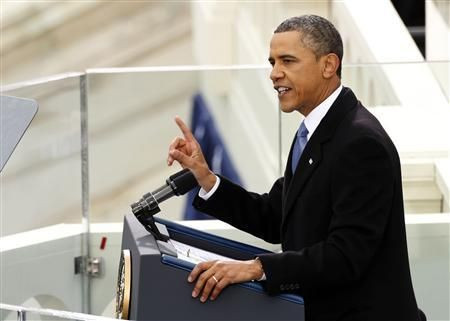Obama Offers Compromise On Birth Control Insurance, But Religious Groups Still Object

One of the biggest objections to U.S. President Barack Obama’s Affordable Care Act has come from religious organizations that do not wish to help pay for their employees’ birth control through their health-insurance plans.
On Friday, Obama offered a compromise on contraception coverage.
His adminstration's proposal centers on a regulation that would have two basic tenets, according to the Associated Press.
First, the administration would broaden the definition of religious organizations that would be exempt from the birth-control coverage requirements. As a result, an employer such as a faith-based food pantry or other community-service organization would be exempt from the requirement that it provide contraception coverage.
Second, other religious employers would be able to allow female employees to receive access to birth control through a third-party insurance agency. Religious organizations would not have to pay for this contraception coverage, as the insurers will be paid by a government-owned entity.
Groups such as the Catholic Health Association have raised objections to Obama’s Affordable Care Act for years, saying that requiring faith-based employers to provide for birth control is a breach of religious liberty, as Reuters reported.
In any case, the jury is still out on Obama’s new contraception-coverage plan.
Some religious leaders, such as Cardinal Timothy Dolan, the head of the Roman Catholic Archdiocese of New York, said they would study the new proposal thoroughly before raising any objections. Others already have indicated they have a problem with the religious owners of secular businesses having to provide birth control for their employees.
"This proposal does nothing to change the scope of religious employer exemption. The proposal has nothing to do with millions of family businesses and owners who are having their rights violated by the mandate and are currently in litigation," Kyle Duncan, the general counsel for the Becket Fund for Religious Liberty, said in a statement.
"This is a moral decision for them," Duncan added. "Why doesn't the government just exempt them?"
The Becket Fund isn't the only religious organization to quickly reject Obama's contraception-coverage compromise. The National Association of Evangelicals, representing about 40 demoninations across the country, also refused to accept the measure.
"The Obama administration should have done the right thing and dropped the contraception mandate, or at least should have exempted all religious organizations," Leith Anderson, the group's president, said in a statement.
Meanwhile, many women's-rights advocates have indicated they think the compromise is fair, in that it allows many religious employers to abstain from the process, while still allowing female employees access to birth-control coverage.
Cindy Pearson, the executive director of the National Women's Health Network, said in a statement: "The proposed rule released today delivers on the promise of the health-care law to ensure women have insurance coverage for contraception, with no additional cost barriers. Contraception is an integral part of women’s health care, and this provision of the health-care law is essential to ensuring that women’s access to the care will improve in the ways that Congress intended."
© Copyright IBTimes 2025. All rights reserved.






















